SHIFT HAPPENS | SEASON 1 • EPISODE 8
Waridi Wardah: A Journey Fueled by Positivity
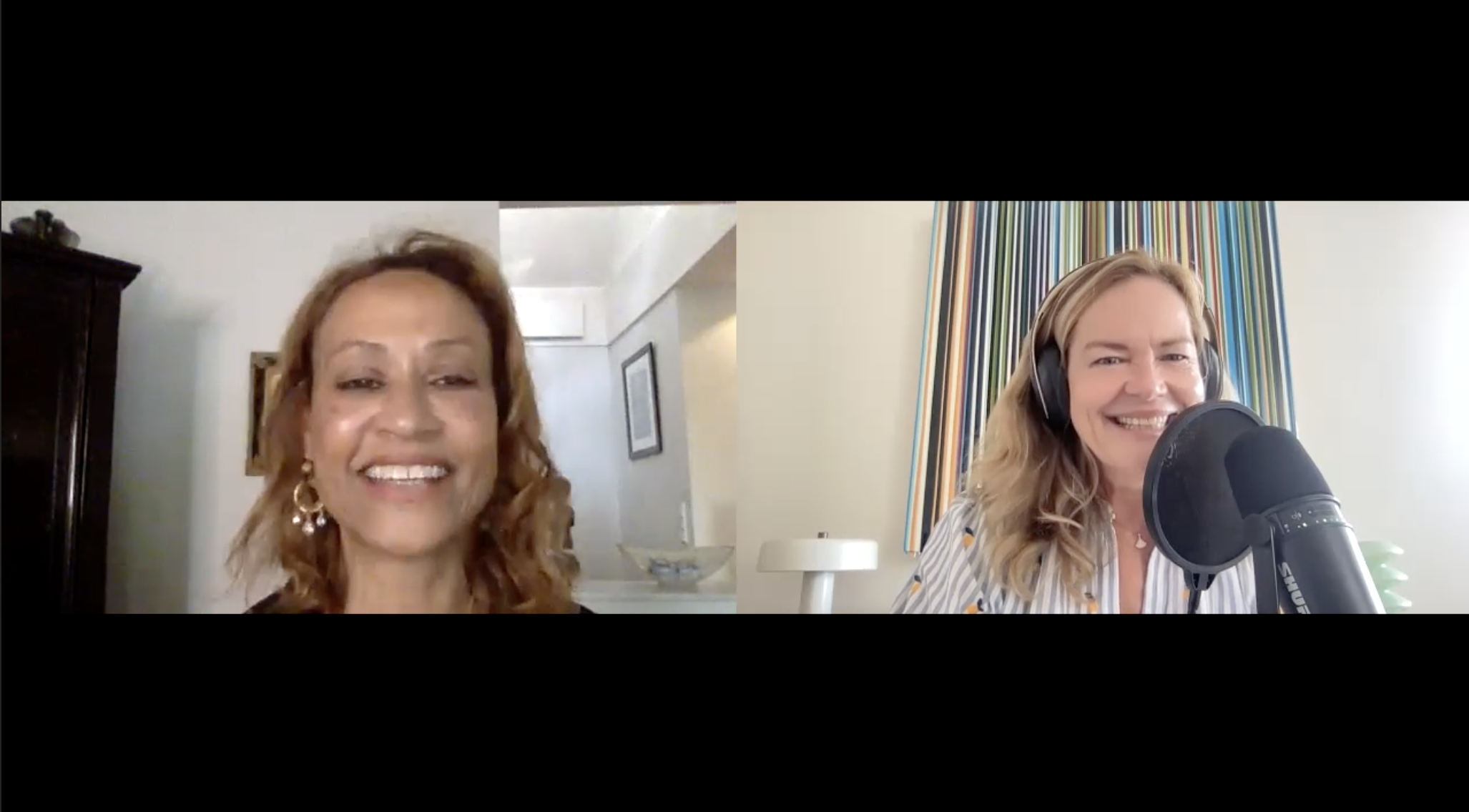
SHIFT HAPPENS is a Global Take on Women’s Turning Points and Pivotal Moments
This week’s guest, Waridi Wardah, is a former model and founder of Fashion Africa 254, a company that furthers the training, expertise and exposure of emerging designers from Africa. Waridi recalls the beginning of her modeling career, and her journey through the fashion industry that has been guided by unwavering positivity and passion.
Listen
About Our Guest
I was born in Kenya and have been a resident of Berlin for more than 25 years, a project designer, mentor, former model and speaker.
I found FA254 in 2013 to further the training, expertise and exposure of emerging designers from Africa. Addressing the gap in the industry, the mission is to equip designers with the necessary tools and knowledge to understand the glamorous yet challenging world of fashion before stepping into it. Being unique, professional, and having an added touch of luck can make a difference in this industry.
The original project, MTINDO, was born as a passion project to shift the conversation and craft a new portrayal of the African continent. The result of the meaningful collaboration between photographer Daniele Tamagni and myself became a powerful book published by Skira in 2016, featuring gorgeous photographs capturing a new generation of ‘style movers’ in Africa.
I’m a contributor to Vogue since 2020 and a member of the German Fashion Council.
I now serve as a devoted mentor and consultant, empowering aspiring young talents in all creative fields to thrive and unlock their potential. I guide individuals, assisting them in navigating their unique paths to success.
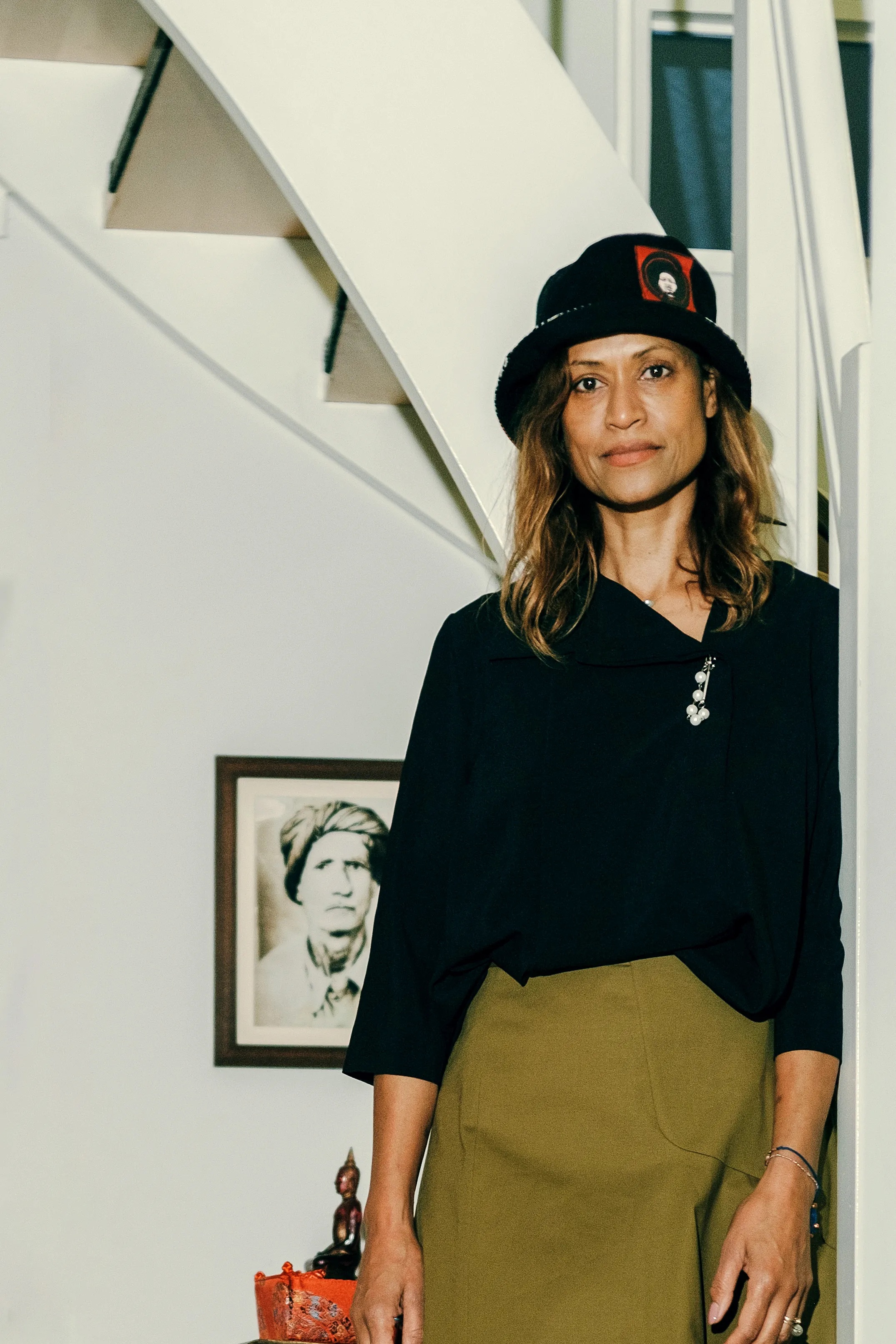
About Your Host
Claudia Mahler is a creative activist, with more than a decade of experience curating meaningful conversations for women in business, art and education in Europe and the United States.
She designs events for women’s empowerment that emphasize organic connection and conversation to complement existing professional development training in a variety of work environments.
She has 20+ years of experience in communications and PR in Europe and the East Coast of the United States.
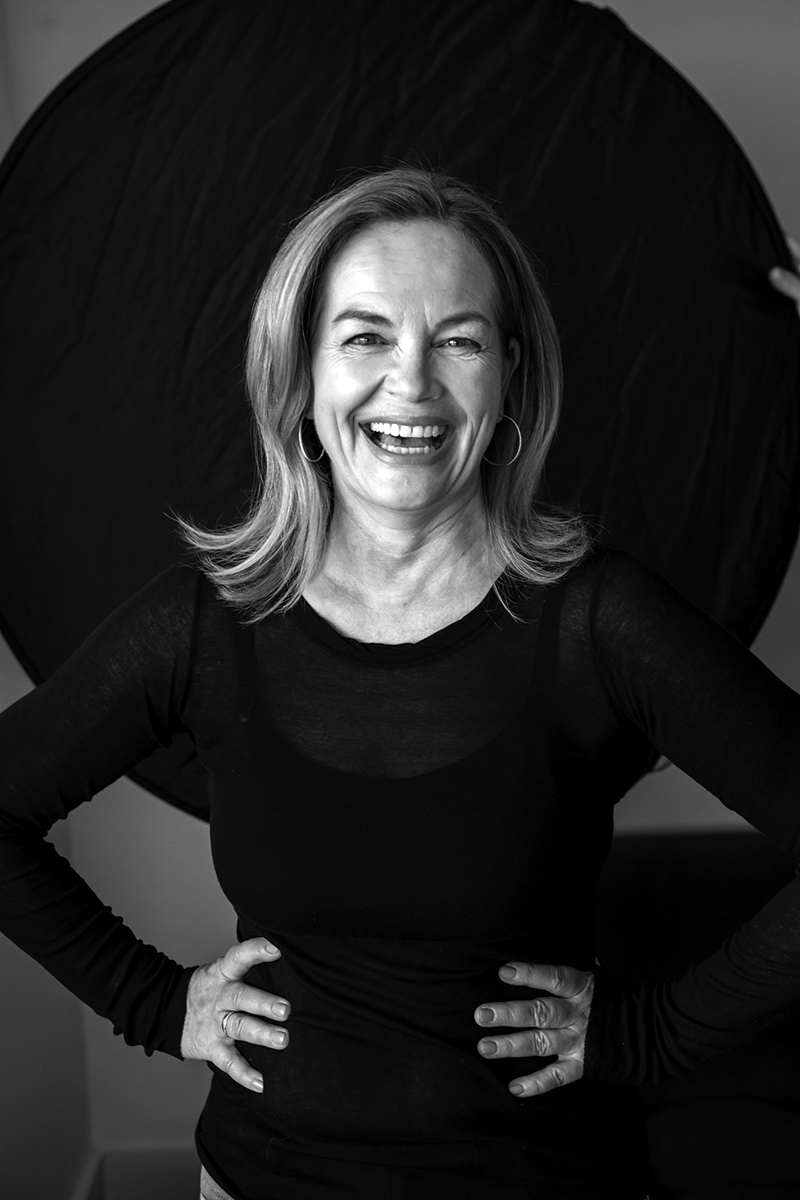
Transcript
Waridi Wardah: A Journey Fueled by Positivity
Claudia: Hello, and welcome to Shift Happens. My name is Claudia Mahler and I am curious about how women made it through turning points in their lives and how they reflect back on them.
Too often, women just get on with it. The everyday, the duties, the expectations—too often, life-altering events are being swept under the rug as life must go on.
With Shift Happens, I want to create a space for women to pause for a moment and to share, to listen, and to feel heard. A space where we connect and talk about life and its pivotal moments—about the highs and lows, the challenges and the joys, about what has been gained and about how enriching change can be. Some things we hear are heavy, some are funny. They all put me in awe as they are honest and raw testimonies of life.
This podcast is a little window into the world. I invited women from all walks of life and various counties, countries and continents. I am in conversation with authors, business owners, artists, life coaches and change makers. All these women have their individual life story and much wisdom to share.
Here we are. This is episode eight, and the finale of the first ever season of Shift Happens. Yay, yay, yay. What a learning curve–from editing, cutting, understanding analytics to experiencing how positive and supportive listeners can be. I’m so proud and happy and excited, not only for the first eight conversations with incredible women, but also that the ratings, responses, and the feedback have been so encouraging, applauding, and honest… very important.
This platform of storytelling and sharing insights into women’s pivotal moments will continue. This show will go on. Mark your calendar: Shift Happens continues on Wednesday, April 17th, 2024.
After today’s episode with Waridi Wardah, a major trailblazer for the African fashion movement based in Berlin, I will take some time to record and produce new conversations with women from India, Africa, Asia, the U.S., and Europe. I am so thrilled for this wonderful opportunity to contribute to getting female voices heard, for helping women to connect over personal stories and for girls to hear from potential role models.
My manifestation for Shift Happens in this coming year is to grow, to find sponsors and advertisers, and you can help too. Please think, and if you think of a brand that would fit our show, please get in touch with me: claudia@claudiamahler.com. Oh, and if you haven’t had a chance to leave a review, please do so on Apple Podcasts, Spotify, or via my website, claudiamahler.com/podcast.
So, today I am joined by Waridi Wardah. Waridi joins us from Berlin. She’s originally from Kenya.
Waridi is a former model, entrepreneur, fashion consultant… you’ve been a contributor to Vogue since 2020. Is it German Vogue?
Waridi: German Vogue.
Claudia: And you are a member of the German Fashion Council. Right. I’m super excited that we see each other again, and that you agreed to share about the shifts and pivotal moments in your life. Before we get there, I just have a few quick questions to ask you.
Waridi: Okay.
Claudia: Flat or sparkling?
Waridi: Sparkling.
Claudia: Dogs or cats?
Waridi: Dogs.
Claudia: Coffee or tea?
Waridi: Coffee.
Claudia: Stones or Beatles?
Waridi: Stones.
Claudia: What is your most treasured possession?
Waridi: Hmm, basically my handbag. I mean my handbag carrying my passport, my ID… the necessary things that I can use at any moment.
Claudia: So, now we are knowing you a little bit better. You wrote to me that there are three decisive moments in your life, the first one really is becoming a model. Maybe you can share with us a little bit about this experience and the beginning of your journey.
Waridi: Basically, I have so many stories to tell, Claudia, that I really will try to be as precise as I can.
Growing up as a Muslim girl, with a Muslim background in Nairobi… I grew up with my aunt and she was super strict, so I was really traditional in the way I wore clothes, the way I appeared, and went to school. I went to Muslim girl’s school, so we wore long trousers and covered our legs and always covered up.
I mean it was a special time, and as a young girl or young woman, I didn’t have boyfriends… I still had feelings as a young girl, just watching my girlfriends enjoying that. I was never really imagining that I could do what they’re doing, it’s just I respected my space and my place. On the other hand, I knew in my mind I was always knowing: I’m traveling.
There was something in me that I knew that I’m not going to be saying in Nairobi or in Kenya–I’ll be traveling–but I didn’t know where. I think for me, I’ve always been creative, and my aunt always used me as a mannequin because she was a tailor, and sewed clothes for friends and clients who knew her, and she used me as a model.
I grew up very quickly–tall–and I mean, at eleven I looked like I was eighteen. So on top, I had to really not be eleven because I looked eighteen, like a woman. I had to really cover myself–my breasts. At eleven already my breasts were at the size of a woman, you know?
Being a mannequin there, I was knowing I have this other part, where I’m being in the traditional way, and then this other part where I am being a mannequin, putting on the clothes, my aunt does the fitting and sees how–you know, as a tailor does, or designer–how things are fitting, and so on. I never thought much about being a model, but I just know that the journey started there. Sometimes I believe in things coming, and then coming to the next thing, where if you say “karma” or if you say, “this is a plan that is happening,” and we’ll go to another step to another stone.
During this time, I got the opportunity–as I said, my journey has always been in a creative way–I saw there was an opportunity to go to Dubai, and be with my cousin who was pregnant. I took that moment to go and be there and support her during this time. I reached Dubai, and I saw that it was already a step outside, to journey out as I always thought I will journey, and that’s where basically my journey started, being in Dubai.
I was supported by a woman who does fashion shows for boutiques like Chanel and the rest, and she asked me if I would like to be a model. I was wearing clothes of course like how Arabian women dress–an abaya–and I said, “Oh, wow. Yeah, I would love to.” So I asked from home if I could do the modeling, and they said “no way.”
I was so shocked. In Arabia, basically, when you do a show it’s only for women, there were no men. I didn’t understand why it was refused that I do the show. Of course, I understood, but I was like, “it’s only women.” And, “No way. There’s no way you’re going to do it.” and I think that’s the moment that triggered me… I have to take a step and to change…
Claudia: Assert yourself.
Waridi: Assert myself, and go for what I want, or what I wanted but never knew, then in this opportunity came. I did one show secretly while being with my cousin, and that’s when she said “If you want to go further to make a career, you shouldn’t stay here, you should go to London.”
So, I did something very brave. I just basically… I was working also at that time, I was in Dubai in an advertising company, and I earned my salary and was saving my money, and got my ticket and flew secretly to London. I ran away.
Claudia: Wow. That’s big. That’s big.
Waridi: Yeah.
Claudia: May I ask how old were you then?
Waridi: 21.When I was there, I was like 20, so, it took me a year. And then at 21, I left for London.
Claudia: Wow. What a story.
Waridi: Yeah. So being brave, taking the risk, and I, as I said, luckily, I think creatively, I don’t think so much on, “Whom do I know, will I be okay?” Or structuring it, programming it, like a business plan. No, I just… first, I have to go there, once I’m there, take the next step.
Claudia: Fabulous. Then you had a life and quite a successful career as a model. You were mostly in London, or were you also in New York, or internationally walking the catwalks?
Waridi: I was in between London and Milan, Madrid, for like two and a half years. Then from there, I then went to New York. I was in New York for four years with the IMG modeling agency, then from New York to Germany was–
Claudia: Dusseldorf, and then Berlin.
Waridi: Yeah. Because at that time, Dusseldorf was the fashion city, right?
Claudia: Long time ago. Yeah. I also am really interested in how it was to establish yourself in Germany coming from Kenya, but also by then, you know, this international experience. Germany at the time was, of course, still a little bit more narrow-minded, I would say.
Waridi: Yeah. I think when I came to Germany, I became–in my mind, in my soul–a model, and I was traveling these international platforms like London, New York, and the doors were really open for me to sort of immediately go to an agency.
The thing, I think, that takes me through my journey positively, is when I come to a country or a city, I do not see, “Oh, New Yorkers are like this, Londoners are like this, and how should I behave?” or “I’m in Germany, of course the language was a different language. It’s one thing to learn the language, but I’ve always been curious with the culture and just embracing culture. I never saw myself as an outsider, unless I was reminded of where from and my background, and to understand exactly who I am and why I’m in Germany, then I remember that. But otherwise, I move myself like a human being… that I can be anywhere I choose to be. I’m lucky with that attitude, because there are challenges of also being a woman of color that confronts and overcomes obstacles.
For me, for example, when I was in Dusseldorf, I had another model friend from New York. She was, when we went to a restaurant, always furious because people were looking at us and I was like, “What’s wrong? Why are you angry?” And she said, “Do you see how they’re looking at us?” And I’m like, “Yeah what’s wrong with that? Because we are beautiful and tall women?”
It sounds so naive, but I mean, everybody’s individual, and this has been my strength… to walk in my journey looking at my perspective differently than… maybe sometimes it’s very provoking.
Claudia: And positive.
To some it seems like I’m not trying to be in reality, but I think…
Claudia: That’s sometimes a very good thing.
Waridi: Yeah, yeah, exactly. That’s sometimes a very good thing, you know. So being in Germany with this attitude, doors that were opened I went through, and those that were not opened I never thought twice, “Why,” or, “I have to break that–kick that door.” Maybe also with who I am or how I am, I attracted positivity that I could work with. For sure, there were challenges like being from modeling, and then starting to go into the fashion platforms as an entrepreneur, still in the fashion industry, it’s like, “Okay, is she good enough? What is she going to do?” In this time actually, luckily for models now, they’re not seen in that way. It used to be that models cannot do business, they’re models, they can’t think, they’re just beautiful. Basically, “What are they gonna do next after they can’t model anymore, you know?”
Claudia: Unbelievably, yeah.
Waridi: I think internally, this is one of the things I was struggling to prove. To move in the German industry, it took a lot of effort and took a lot of time. Like you said… thinking in a box… Germans are quite… they have their frame. And I’m always thinking out of a box. Sometimes it was irritating to the space or industry, but in time, it’s being confident that helped to basically overlook being watched and being scrutinized or criticized. It’s part of the journey and the learning.
Claudia: So, you always knew that fashion is your world. Fashion is your passion, but it really is your world. When you decided to go from modeling into the fashion industry, were you always thinking about the continent where you are from and how to support and work with African fashion designers, or did that develop over time?
Waridi: I mean, even when I went out as a model, I have always been fascinated with materials… with the textures of different fabrics. Also this is during the time with my aunt, they had such beautiful materials from India from Arabia, and especially in Kenya… the Indians are the ones who are in the textile industry, so you get a lot of beautiful fabrics from India. I was always fascinated with the fabric. As a model, I was just lushing this beautiful fabric, wearing them, feeling them, understanding them, it was more for me… much more intriguing. Knowing the gift I had, or the uniqueness I have, I could do that. Otherwise, I would not have been chosen to be on the catwalk.
When I came to Germany, coming at that age was like, “Okay, now, um, thirty-five years old, what else should I add into my profession? Still connecting to the experience and knowledge of my journey from London to New York and back to Germany for like, ten years. Luckily, I was chosen as a jury member for ESMOD Berlin Fashion School. When I was a jury member there, that’s when this turning point came, like, “Oh, there’s a gap here for me,” you know?
But also while being in Germany, I was always being approached with African topics–in the negative way.
Claudia: Which negative way?
Waridi: Well, maybe it’s not negative, but you know, more like I should be an ambassador for an organization supporting immigrant women who have HIV. Because basically the topic of supporting women has always… I’ve been passionate with it… but it was just that topic was taboo. It was seen also as Africa, and not something that existed in Germany, even though we had a big organization in Germany that was supporting all the people… at that time, as you know, in the 90s it came again, the HIV topic. I do remember with the ESMOD Fashion School, luckily I got along so well with the directors of the fashion school. While talking to them, I was like, “Okay, why don’t we do something? Because you’re so creative, you have ideas, and we can use your ideas to initiate topics with the first year students.” And that’s how I saw, “Oh, this is something I can work with.”
So basically, as you say, fashion has always been my passion to the real truth. Through my journey, basically, it’s been a way to converse, keep conversation, but also a tool to communicate different topics. This was 1999-2000, I started to use fashion as a tool to communicate topics… the topics about the immigrants, about HIV and AIDS, and that’s when it brought more awareness about what’s going on in Africa.
This is when I thought, “this is what’s happening in Africa…and then there is so much beautiful stuff, positive stuff, amazing countries with different cultures… and here I’m talking about this part, which is important to the world, but it’s charity to collect money to give to poverty in Africa, to an HIV organization in Africa.” I thought, “I want to speak another language, using this tool I have with the knowledge and experience.”
Claudia: Yeah, so shifting the storytelling, and really bringing out so many facets that there must be. You also published a book about this with a photographer in 2016. If you tell us a little bit about that piece of the journey…
Waridi: Yeah, so through the whole experience with the ESMOD Fashion School, I saw that I had to take this gap. As I started to research more about the African continent or what I want to basically show people… the vibrancy, the talent, the creativity. So I founded my company, Fashion Africa 254 in 2013. During that time, I was working a lot in between Berlin and Kenya and Tanzania, Uganda, the East African countries, and I saw, “I have to put this together. How can I put this together…about the continent, where it’s not just like, okay, fashion show… Berlin Fashion Week, maybe an article, and then it’s… thrown away. How can I just put this content together in a photography book so that it can communicate?”
Yeah, Style Movers of Africa. I had contact with Daniele Tamagni, the photographer from Milan, and he published a very famous book called Gentlemen of Bacongo, which is really colorful.
Claudia: Yeah, I love it.
Waridi: I loved his book, and I thought, “Wow, if I work with a photographer who is understanding this movement of Africa…” and I heard he loved Africa, and so I put this proposal together with my team and approached him, and he loved the idea. I was like, “Okay, so… we don’t have enough budget to do the whole of Africa, but I would like to use Africa, and portray…” even if this is in Kenya, what I’m showing in the book this vibrancy is not just in Kenya, it’s the whole of Africa.
If you go to Nigeria, Ghana, even Morocco, wherever, you can find this vibrancy and this energy and the movement that is happening. That’s how the book was born. It’s a photography table book, and I’m very proud of it.
Claudia: Yes, you should be.
Waridi: Only, it’s sad that the photographer died in 2017. But the book lives on, and also something I’m emotional about is that this project gave him two years more of his life, due to his sickness. It was very emotional to create that book.
Claudia: But he was still alive when it was published?
Waridi: Yes, he was alive. That’s why also I rushed to do it, because I knew he was sick. We published it in September 2016, and his dream was also to have an exhibition in Berlin. So I really worked hard to get a gallery in Berlin, one of the contemporary galleries in Berlin, I’m sure you know, I’m Volker Diehl. I don’t know if you remember.
Claudia: Yes, yeah.
Waridi: Yeah, he gave his space for the exhibition and to launch the book in October 2016. Sarah Maino from Vogue Talent also wrote a quote for the book, so we also did a launch in Lake Como in May 2017, and then six months later he died.
Claudia: Wow.
Waridi: But the book lives on for him. And for me.
Claudia: And for you. To share all this vibrancy. I think that’s so important for the world to have this other window into Africa, because yes, as you said, growing up, the pictures that we saw were of, starving children and all the devastation that is happening there. The world needs to see that, but also there’s another side. And there’s another identity, right?
Waridi: Exactly. Yes.
Clauda: Yeah. So, I’m dying to hear… your aunt, have you been back in touch with her, if I may ask? And is she proud? She must be so proud, and she must be so happy, because it’s all started with her.
Waridi: Well, she’s one woman I basically saw as… she gave me strength, even though it was a weakness, maybe not weakness. A challenging, like with restrictions and not being allowed. Of course, it took me ten years of no contact with home before I went back and visited home. But after ten years, I didn’t see her, because she didn’t want to see me, because she was still against my journey.
Ten years later, again, I went and then she had forgiven me, and I saw her. It was lovely to see her, but I could still see she… you know, she’s very…
Claudia: She was very doubtful.
Waridi: When I saw her again, she made me even more curious about the Arabic side of me. I’ve always worked in my career as an African girl. I always said, “I’m African and from Kenya,” I never really brought out my Arabic part, which is basically 75% and 25% is Kenyan. It really also made me see that I have to know… how do I bring that to be the whole part of me, and not just one part I never wanted to explain?
I never did in the beginning of my journey because I, at the time, was much more of an action person than to speak out, because power was also brought up… I didn’t want to explain a lot. I didn’t want to be asked a lot. I just wanted to come to do what I came to do, and express what I came to do. My voice during this time, my voice is growing, and I’m ready to speak it out. And I am so glad to speak to you to voice it out and inspire.
Claudia: Yes, that’s fantastic. That’s important and role models are needed. Yeah. Role models that are internationally active. That’s, I think, also a good transition now to Fashion Africa 254. That’s your company.
Waridi: Yes.
Claudia: And of course, I’m curious, what’s the name? What is it about the numbers? What do they stand for?
Waridi: So, Fashion Africa 254. I love numbers, first of all. I thought, to make a difference and not just keep it on a fashion name brand, two is the code you call to dial Africa, and there are fifty-four countries in the continent.
Claudia: Ah, okay.
Waridi: So that’s why it’s 254.
Claudia: All right. Cool. So, FA254 you started this in 2013 so it’s ten years old, and you are focusing on young African designers, the fashion world there… share a little bit about what you’re doing there.
Waridi: Basically, as you said, focusing on discovering young designers. I then create a design project when I’ve discovered the designers. It depends where they’re from… Ethiopia, or from Kenya, or Nigeria, or Rwanda, and through that I design a project so I can support them by getting sponsors. I can lead the mentorship for one year. I always choose ten designers a year, and through this mentorship comes the whole package. From there, three or four chosen designers who are ready after one year of consulting and mentoring are ready to be shown in the German platform, and that means the Berlin Fashion Week or the retailers.
The idea was always also how to bridge the German platform with the African platform, and also making conversation–using fashion to bring that conversation. What is Africa all about? What talent is there? What can they do? They are not just talented, they can also have quality, and deliver.
Also at that time, they delivered with the limitation of order, and not in mass production. And then again, you see we come now and this time, where the African designers were sustainable and still are, and now we are talking about sustainability, and how to produce less and to take care of our climate.So in that sense, this was actually one of the points during the mentorship of the designers: to create with what they have, and with the demand they can give, and not with the demand that is expected internationally. It’s important for them to think internationally, but work locally, and focus on your local platform. This is the main work.
Claudia: That’s fascinating. There must be quite a run to be chosen. It’s like a scholarship that you organize for them, basically. Mentorship, or like a grant.
Waridi: It’s very challenging. Well, the word challenging sounds maybe negative, but challenging in a positive way, because we learn a lot from each other. I learn from the designers, and the designers not just learning from me, but also I bring in other German experts from the fashion industry to be part of it, and they learn also from the African platforms, and so it’s exchanging their knowledge, their culture.
One of my courses is changing minds, and that is how to change each others’ minds, by understanding how the other’s mentality is working. Not just understanding the German mentality, but also understanding the African mentality, and kind of to balance like a relationship, compromise and see how to work together.
Claudia: Yeah. So Waridi, what a journey. Unbelievable. You said there are so many more stories–as there are in life–but these very significant turning points and pivotal moments, you would say–just to summarize it again–that really your positive outlook, and intuitive positive outlook has helped you go through the very challenging times. And this deep passion it seems that you have, and to always bring people together and to really bring the continent of Africa into the conversation over and over again.
Waridi: This is my passion.
Claudia: That’s really admirable. So, I’m sure your life is very busy. So I want to ask you now towards the end, what do you do to calm down?
Waridi: Meditation.
Claudia: Meditation?
Waridi: Meditation. And then in evenings, I like to be with friends, and just like let go and enjoy food. I don’t think much about food, but then in the end when you have this moment to sit down and eat and speak and it’s just so nourishing and relaxing.
Claudia: On various levels.
Waridi: Yeah, I go out for dinner, it gives me a relaxing feeling.
Claudia: And what energizes you?
Waridi: My family, nature, it’s just beautiful to be alive. It’s energizing. It might sound weird, but I wake up, and I’m alive, and privileged, thankful for where I am and with every space around.
Claudia: And I forgot to mention that, of course, you’re also a mother and you have a grown daughter.
Waridi: Yes.
Claudia: Is she also in Berlin or?
Waridi: She’s actually reverted to go back to Africa. She’s based between Cape Town and Dubai. It’s very interesting to see that I left and she’s going back.
Claudia: Yes.
Waridi: Yeah, so it’s kind of one plus one is two, or maybe three.
Claudia: It’s very, very interesting.
Waridi: Yeah, it’s very exciting. I didn’t expect it at all.
Claudia: Well, life and its turns.
Waridi: It’s also very energizing to see the journey she’s taking or starting, rather.
Claudia: Well, Waridi, I thank you totally and super much for being in conversation with me here for Shift Happens. And I will see you soon.
Waridi: Yeah, thank you so much, Claudia. Really, really after, I don’t know, 20 years speaking only by email and seeing us. It’s amazing.
Claudia: And soon it will be in-person.
Waridi: I can’t wait to tell all the friends we know.
Claudia: Wow. Kudos to Waridi for following her intuition so authentically, despite the many cultural and religious obstacles. A journey that led her into being a major force in changing the narrative around Africa and its fashion movement. You really should follow @fashionafrica254 on Instagram. It’s so vibrant and an infusion of color, elegance, and new talent.
This was really a remarkable story of a young woman having the courage to follow her intuition to leave a very strict and oppressive home, to free herself and grow into the woman she is now. A globalist, being 25% African, and rediscovering her 75% Muslim side. Clearly, with her daughter, the journey of exploring and searching for identity seems to continue.
I surely will remind myself of Waridi’s beautifully positive attitude, a major takeaway for me.
Shift Happens has been created and is hosted by me, Claudia Mahler.
Editing, Andy Morrison.
Communications and Marketing, Amy Jacobus and Jessica Pearson from Amy Jacobus Marketing.
I hope you felt connected and heard while listening to Shift Happens.
More Episodes of SHIFT HAPPENS
Dr. Molly McBride: How To Manage Women’s Health
In this episode, renowned New York gynecologist Dr. Molly McBride discusses menopause and the importance of validating women’s symptoms against serious health risks like cardiovascular disease. She criticizes colleagues who lack knowledge, advocates for HRT, and now offers health plans for men from her new Flat Iron district practice.
Helen Schulman: How To Practice “Sympathetic Happiness”
In this episode, acclaimed novelist and New York Times bestselling author Helen Schulman reflects on “sympathetic happiness,” a lesson she learned from the Dalai Lama that shaped her teaching and writing. She discusses finding joy through others’ success, her new novel Fools for Love, and beginning her sabbatical in Paris to work on historical fiction.
Cornelia Thomsen: How To Transition From East To West
In this episode, East German–born, New York–based artist Cornelia Thomsen shares her journey from a socialist upbringing near Dresden to becoming an internationally exhibited artist. She reflects on resilience, motherhood, and her path from Meissen porcelain painter to abstract artist, culminating in her Golden Ratio Series being acquired by the Metropolitan Museum of Art.
Will You Leave a Review?
Reviews help podcasters build credibility on Apple and other networks!
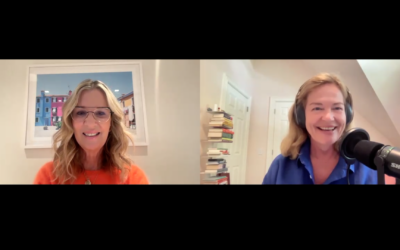
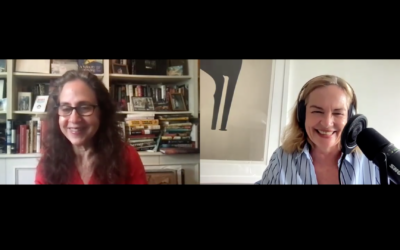
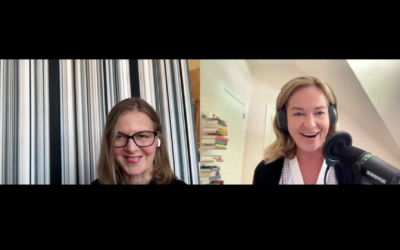

0 Comments